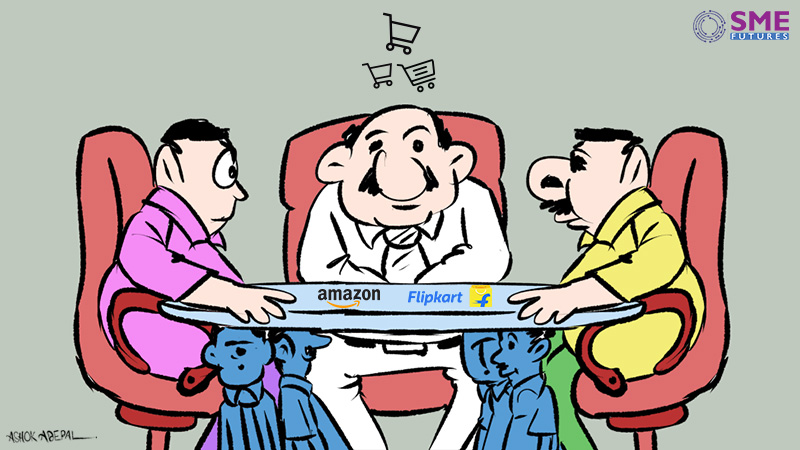The government has recently embarked on an exercise to frame a national policy on e-commerce, with a think tank constituted on the issue under the chairmanship of commerce minister Suresh Prabhu. The proposed e-commerce policy would help regulate the fast growing sector and bolster its growth while helping the sector in cross-border trade. Prabhu said the policy would also protect the interest of companies that deal with e-commerce companies. It would come out with the framework in the next six months to deal with issues such as competition, regulation, data privacy, taxation, localisation of servers and technology transfer.
Senior officers of various ministries and departments, e-commerce companies, telecommunication and IT firms, RBI and independent experts have been invited to participate in the meeting. However, vendors have expressed concerns over exclusion in panel drafting national e-commerce policy. The All India Online Vendors’ Association (AIOVA) has written to commerce secretary expressing their dissent. AIOVA is a group of more than 3,000 vendors, which raises the concerns of online vendors.
A representative of AIOVA spoke with SME Futures and discussed the issue of the proposed think tank, the government’s decision to come up with an e-commerce policy and why the seller community has been left out of this discussion.
What’s your take on the government’s decision to come up with a national e-commerce policy?
AIOVA is a group of more than 3,000 vendors, which has been raising issues of online vendors with the government from time to time. We work for the awareness and welfare of the sellers doing business online. Recently we have written to various government departments regarding payment issues, e-commerce platforms offering heavy discounts on private label products, etc. Our fight is not against any particular company, group or sector, but it is for getting reforms in marketplace selling.
We are glad that government is taking step in designing a policy for e-commerce as a whole, but we would suggest them to bifurcate issues and take them sector wise and take up our issues as a case of selling of goods through e-commerce marketplace.
How do you see the fact that vendors are not represented in the proposed think tank?
We are disappointed. It is unfair that we have not been included [in the government think tank on e-commerce]. Moreover, our suggestions are also not being sought. We highly doubt integrity of a think tank which has zero representation of traders who may be affected by its decisions. Further, we are unhappy that not only our organisation, but entire seller community has been left out of this discussion. We have expressed our displeasure to the commerce secretary in a letter.

What are your recommendations for the national policy?
We have already made multiple presentations in the past 18 months to NITI Aayog, Department of Industrial Policy and Promotion, Reserve Bank of India, commerce ministry and consumer affairs ministry. Even if one presentation is considered [by the authorities], then the process of reforms can start. However, it seems that the government has totally sidelined us.
Now that the seller community is sidelined, how will you take the discussion forward?
We are lobbying hard to get our voice heard, but it seems that vested interests find a better ear with the commerce ministry. We shall oppose any step that would seem detrimental towards sellers. We have taken up this cause with other offline and retail trade associations as well.











